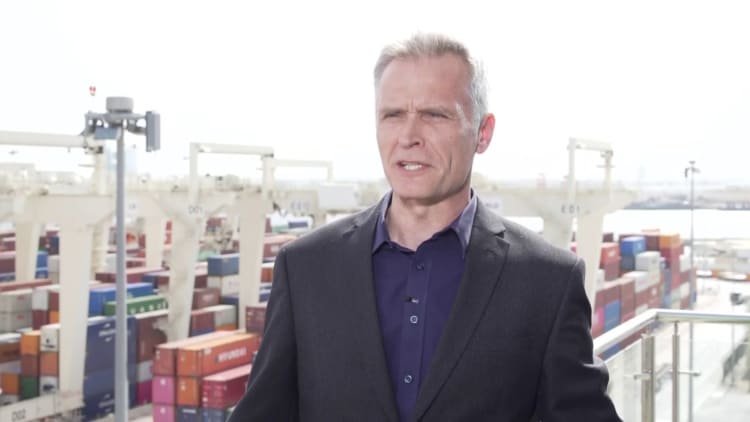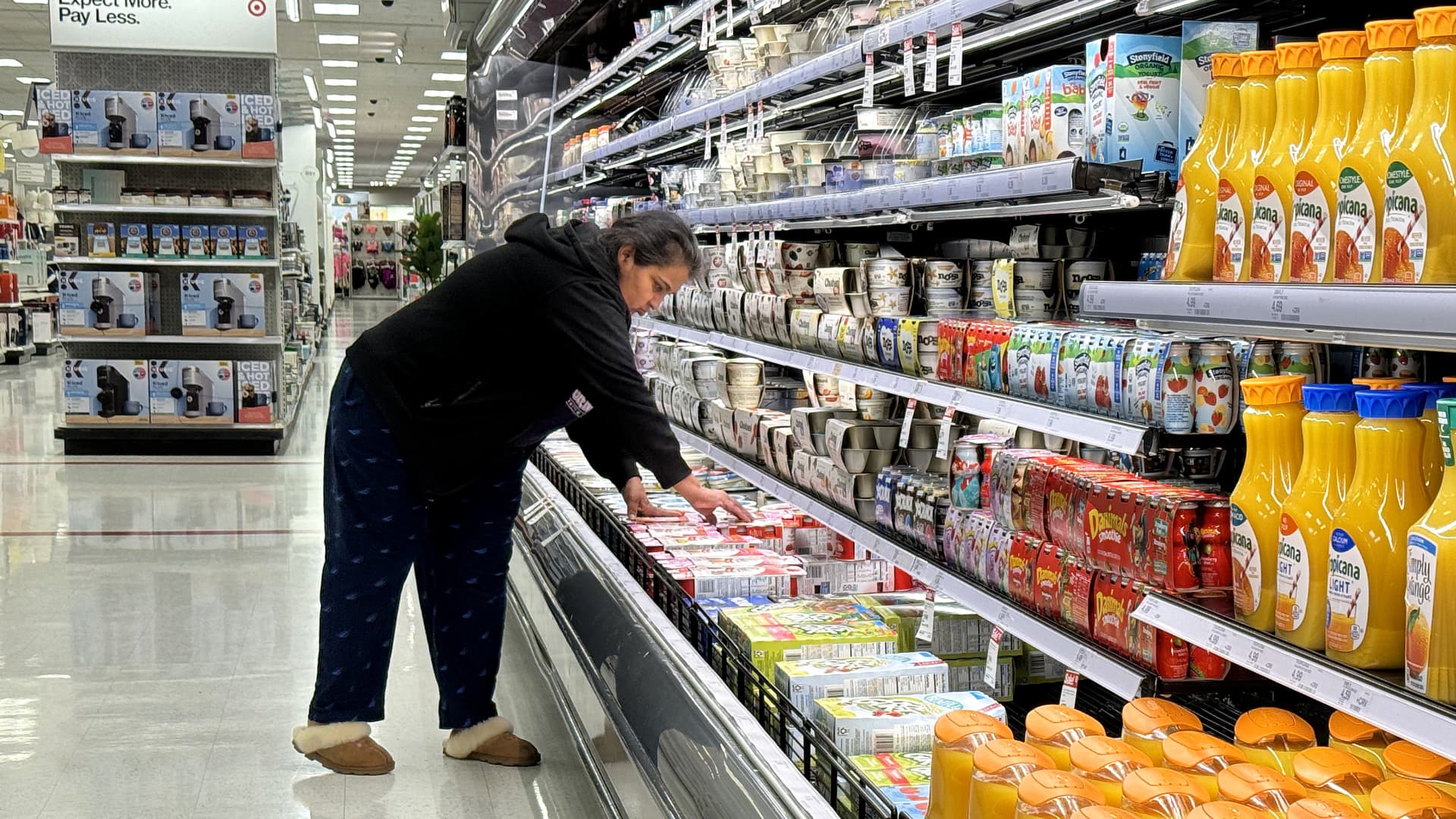Increased shipping costs due to ongoing tensions in the Red Sea could hamper the global fight against inflation, the Organization for Economic Co-operation and Development said on Monday.
The Paris-based group estimates that the recent 100% increase in sea freight rates could increase import price inflation in its 38 member countries by almost 5 percentage points if it continues.
This could add 0.4 percentage points to overall price increases after a year, the OECD said in its latest economic outlook.
In late 2023, major shipping companies began diverting their ships from Egypt’s Suez Canal, the fastest trade route between Europe and Asia, amid a spate of attacks by Iran-backed Houthi fighters based in Yemen. Tensions remain high as the navies of countries including the United States are involved in the conflict.
A cargo ship sails on the Suez Canal in Ismailia province, Egypt, on January 13, 2024.
Ahmed Gomaa | Xinhua News Agency | Getty Images
Ships are taking the longer route to the Cape of Good Hope around the southern coast of Africa, increasing travel time by 30 to 50% and depriving the global market of capacity.
However, the OECD also points out that the shipping industry had excess capacity last year due to the ordering of new container ships, which should ease cost pressures.
Clare Lombardelli, chief economist at the OECD, told CNBC on Monday that a continued rise in inflation as a result of the recent crisis was a risk but not the group’s base case.
“This is something we are watching closely… we have seen an increase in shipping prices and if this were to continue for a longer period of time it would impact consumer price inflation. But at the moment that is not the case. “We assume that this will be the case,” Lombardelli said.
According to Tiemen Meester, chief operating officer of Dubai-based logistics company DP World, European imports are the biggest challenge and there have been significant delays to cargo already in transit.
“Unfortunately, the inefficiencies in the network result in higher costs, which ultimately increases tariffs. But actually they are nowhere near as high as they were during the coronavirus crisis… As for how these costs will find their way to the consumer, “We’ll wait and see,” Meester told CNBC, describing it as a “short-term issue.”
“I think we’re in a stable state now because the networks have adapted and freight is flowing, bookings are increasing, it’s just taking longer,” he added.

The OECD’s Lombardelli said there had been overall positive data among its members in recent months, showing a continued decline in inflation. This will help rebuild real incomes and boost consumption, she said.
The OECD’s 38 members include the United States, the United Kingdom, Australia, Canada, Mexico, France, Germany, Israel, Turkey, Japan and South Korea.
In the latest outlook, the US economic growth forecast was raised by 0.6 percentage points to 2.1% for this year compared to the previous estimate in November. The Eurozone outlook was cut by 0.3 percentage points to 0.6%, while the UK outlook remained unchanged at 0.7%.
“We’ve seen positive news from the US, we’re now seeing a decline in inflation, but we’re not seeing a big cost to the labor market there,” Lombardelli told CNBC.
“Growth appears to be stronger and inflation is falling. So you’re going to see a rebuilding of real incomes there in the US, and that will support consumption growth.”
Europe is more affected by an energy price shock, the impact of inflation on real incomes and consumption and its greater reliance on bank financing amid tighter monetary policy, she said.
In the medium term, the OECD assumes that the aging workforce will slow down growth more.
Still, the OECD sees the European Central Bank in a position to cut interest rates in the second half of the year if current trends continue, Lombardelli said.
Source link
2024-02-05 15:14:41
www.cnbc.com








